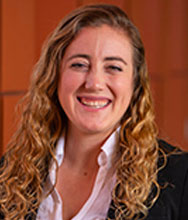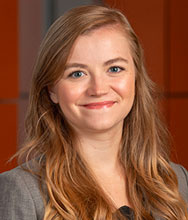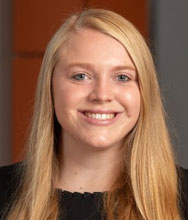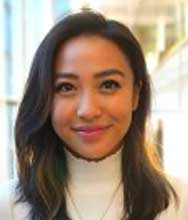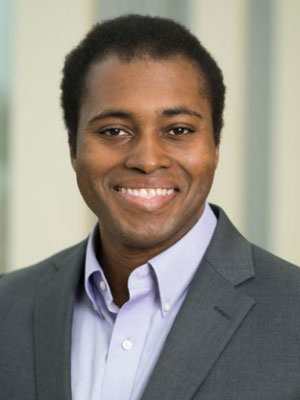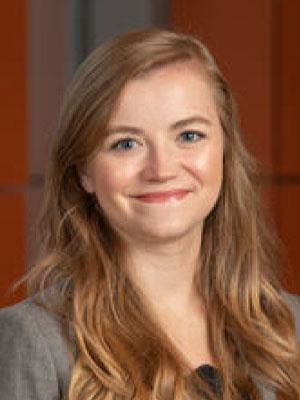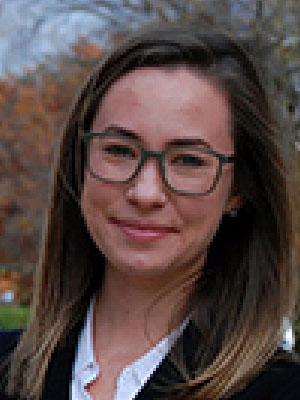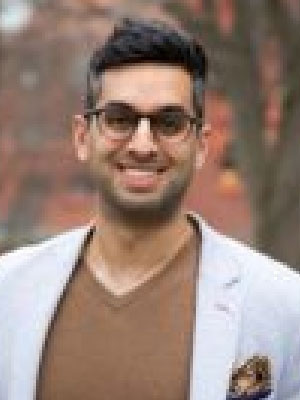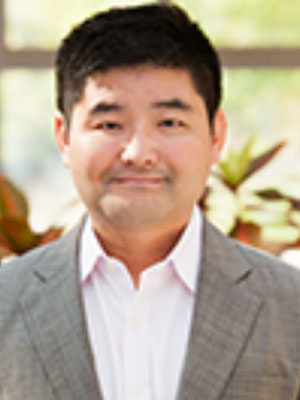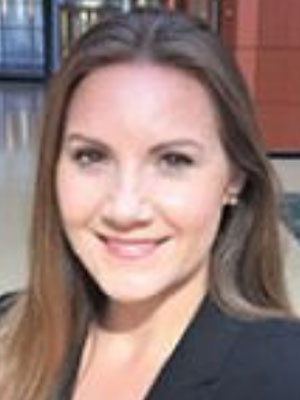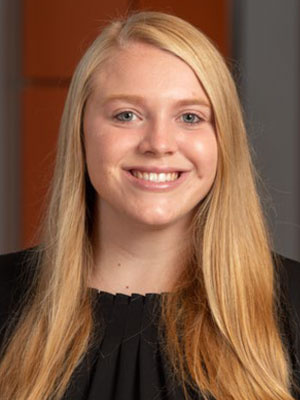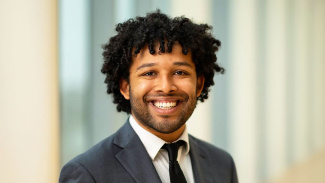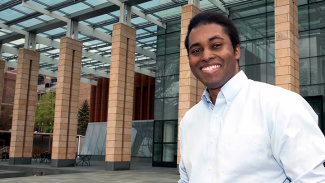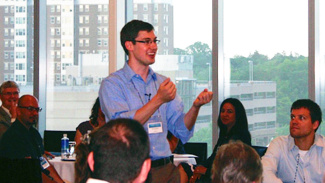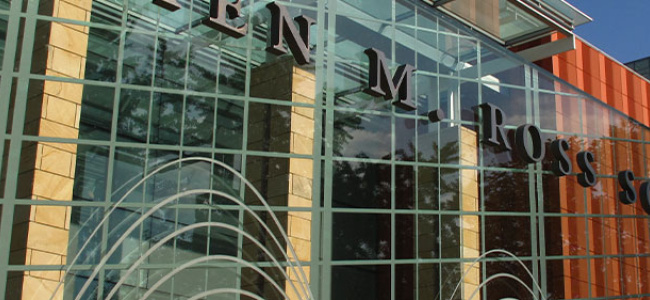
Prepare for a career teaching and leading at a top business school. Collaborating with world-renowned faculty, you’ll produce research that explores individual and organizational dynamics, helping managers make better leadership decisions. Leverage the resources of top-ranked social sciences programs across the University of Michigan to add breadth and depth to your research.
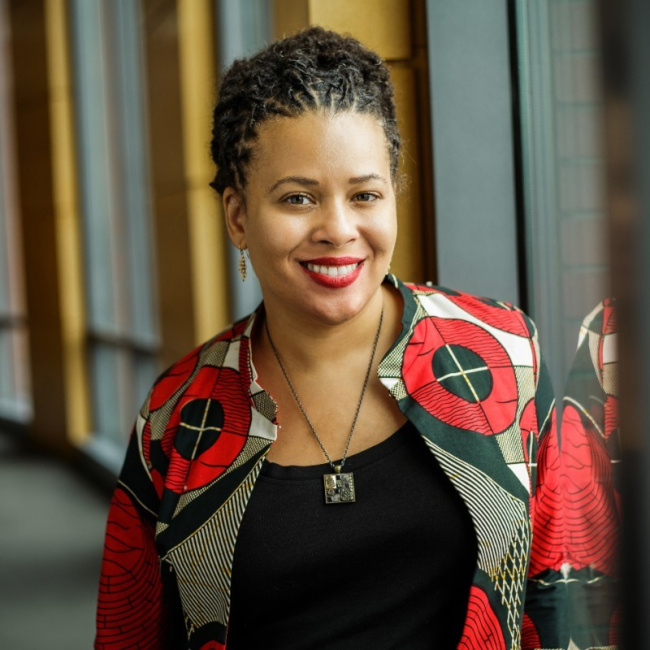
Research Origins: Where do research ideas come from?
Michigan Ross Professor Gretchen Spreitzer explains the genesis of her research on how employees at the middle level of an organization can feel empowered to spark change and thrive.
The first two years of coursework will serve as a foundation for research, appealing to individual research interests.
The first two years of the program include a sequence of four seminars on organizational behavior and theory and four terms of research methods courses, two of which must be quantitative. You will take additional graduate courses in your areas of interest.
Foundational courses include a sequence of four departmental theory seminars on organizations. They also include statistics and research methods courses, two of which must be quantitative while others can be qualitative. Together these courses provide a strong foundation in both micro and macro aspects of the field.
You will take additional graduate courses in your areas of interest including at least two in related disciplines such as sociology or psychology. MO students routinely take courses in strategy, psychology, sociology, and anthropology, as well as political science, complex systems, education, and linguistics. View a representative list of courses taken by past MO students.
First-year students also enroll in an independent study on professional development. Co-taught by several faculty, each session covers a different topic, including “finding your topic of passion”, “developing professional relationships”, and “developing strong theory.”
More details on course structure
Teaching
Michigan Ross places a unique emphasis on developing students' teaching and classroom skills.
As opposed to the typical practice of being a TA for a number of discussion sections throughout their time in the program, Ross students teach a full course as sole instructors for one semester. This has the advantage of concentrating teaching effort to one semester, and more importantly gives you the critical experience and skills needed to differentiate yourself on the job market and succeed in the classroom as an assistant Professor.
In the fall of your third year, you will teach one section of MO 300, the required Organizational Behavior Course for undergraduate business students. Typically, you will teach and are responsible (including grading) for one section (70-80 BBA juniors) of the multi-section class; other sections are taught by full-time faculty members. You will learn to teach in a supportive environment with weekly mentorship and guidance from the teaching team while also experiencing the autonomy and responsibility that comes with being the sole instructor for your section.
Leading up to the teaching semester, you will take part in the Ross Faculty in Training program. These hands-on seminars cover lesson planning, classroom management, and instructional methods, and include practice teaching sessions with live feedback.
Students typically find their teaching experience to be enriching and positive, and by the end of their teaching semester feel well prepared to teach successfully as an assistant professor.
Before the end of the second year, you will complete a piece of empirical research under faculty guidance.
Faculty mentoring begins in your first year, soon after entering the program. You are assigned to a faculty member for a research assistantship based on your research interests, working informally on projects with faculty – either self-initiated projects or projects faculty already have underway. In your second and third years, you will rotate to work with other faculty members to gain exposure to other research topics and approaches.
Work collaboratively with faculty on developing an initial plan and working out the research details, meeting systematically to discuss the research question, theoretical development, and methodological approach.
Independent Empirical Research Study
Purpose and Scope
The IERP is an empirical project designed and conducted by the student under the guidance of two MO faculty members. The project provides hands-on experience in every stage of independent research aimed at publication, including reviewing the literature, designing a study, collecting and analyzing data, and writing up the results. The result is expected to be a study.
Year One
Because the scope of the project is substantial, you are encouraged to choose a topic area in your first year. You should select an advisor during the winter semester of your first year and begin work on the design..
Summer: Data collection should begin during the summer between your first and second year.
Year Two
January 15: A draft of the sections up to and including the methods section is due.
February 15: Based on feedback from the advisor, a revised draft of the prior sections and a draft of the results section is due.
March 15: Final completed paper is due.
Evaluation
The study is to be evaluated by a committee comprised of the advisor and a second reader among the MO faculty chosen by you. The paper is acceptable if the faculty committee judges it to be highly likely to be accepted for presentation at the Academy of Management annual meetings. You are given one opportunity to revise the paper to meet the standards of the committee.
Presentation
You are expected to present your study to the MO department students and faculty in the brown bag seminar in April of your second year.
The preliminary exam, covering organizational behavior, organizational theory, and research methods, takes place at the end of the second year. The remainder of the program is devoted to the dissertation.
The exam tests your synthesis of course material and assesses readiness to undertake independent research. You will work closely with others in your cohort to prepare for your prelims. In the remainder of the program, you enter a period of independent dissertation research with an advisor and dissertation committee.
True to the spirit of interdisciplinary scholarship, you will receive advice on your research from faculty in a variety of departments. In addition to MO faculty, faculty from strategy, operations, sociology, organizational studies, marketing, psychology, and even anthropology and medicine sit on dissertation committees.
ICOS, or the Interdisciplinary Committee on Organizational Studies, is a Michigan institution going back over two decades with the single goal of enhancing the University of Michigan's strength as a world center for interdisciplinary research and scholarship on organizations. During the school year, weekly ICOS seminars at Ross feature organizational scholars from various disciplines such as business, psychology, sociology, public health, history, and information.
Ross is also home to the Center for Positive Organizations, a research community dedicated to inspiring and enabling leaders to build high-performing organizations that bring out the best in people.
Benefit from access to numerous best-in-class research and methods support resources on the University of Michigan campus.
A few of the campus resources available include:
Consulting for Statistics, Computing, and Analytics Research
Provides consulting services and training opportunities in statistics, data science, and advanced research computation to researchers across campus, regardless of skill level or academic background. Many MO PhD students have taken advantage of free CSCAR consultations for advice on research design and analytic strategies for both survey and experimental data (e.g., R and Stata) as well as computational and big data (using Python/Numpy).
Inter-university Consortium for Political and Social Research
The ICPSR, headquartered in the University of Michigan's Institute for Social Research, is a powerhouse of data and methods support for social and behavioral sciences. ICPSR's data archive provides students with access to over 250,000 files. MO students particularly enjoy ICPSR's Summer Institute, which holds four-week intensive workshops on research design, statistics, and data analysis.
The ICOS Big Data Camp is the latest in the series of cutting-edge methods training available to MO PhD students. Hosted by MichiganRoss, the week-long camp teaches researchers how to tap into the web-mediated social world to access massive data sets. Many MO students have attended the camp and built new skills in Python and SQL to use APIs and NLTK in their research.
Undergraduate Research Opportunity Program
The UROP affords PhD students access to additional research assistance. UROP matches undergraduate students interested in gaining research experience to faculty and doctoral students who are looking for research assistance and willing to mentor students. Occasionally, MO students take part in UROP, getting component research help while learning to mentor students.
As a PhD student at Michigan Ross, you will have the opportunity to work closely with social scientists spanning a broad range of research areas and have access to unparalleled resources for pursuing your diverse scholarly interests.
Learn more about the faculty and research contributions of the management and organazations area at Michigan Ross.
Eun Bit Hwang, 2024
Lecturer at Michigan Ross
Hilary Hoyt, 2024
Post Doc at Oxford University
Alaina Segura, 2024
Post Doc at Harvard Kennedy School
Kat Bae, 2023
University of Illinois at Chicago
Sarah Gordon, 2023
McGill University
Mijeong Kwon, 2022
University of Colorado, Denver
Laura Sonday, 2021
University of North Carolina
Eun Woo Kim, 2020
University of Nottingham, Ningbo China
Lindsey Cameron, 2019
The Wharton School, University of Pennsylvania
Teddy Dewitt, 2019
University of Massachusetts, Boston
Cassandra Chambers, 2018
Bocconi University
Chen Zhang, 2018
Tsinghua University
Lyndon Garrett, 2017
Boston College
Ashley Hardin, 2017
Washington University
Yong Hyun Ki, 2017
Hong Kong University of Science and Technology
Maddy Ong, 2016
Singapore Management University
Matt Karlesky, 2015
Suffolk University
Suntae Kim, 2015
Boston College
Chris Myers, 2015
Harvard University
Join the next generation of research scholars preparing to solve the most complex issues facing the fields of management and organizations.
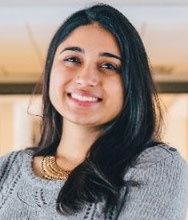
Manjari (Manju) Ganti
[email protected]

Anusha Kallapur
[email protected]
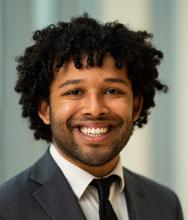
Devin Kilpatrick
[email protected]

Jordan Nye
[email protected]
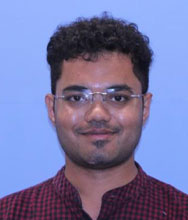
Sridhar Polineni
[email protected]
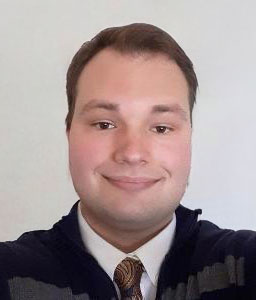
Ben Quist
[email protected]
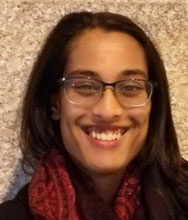
Sukanya Roy
[email protected]
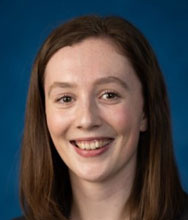
Zoe Schwingel-Sauer
[email protected]
Learn more about the PhD community and collaborative experience within the program from current students and recent alumni.





